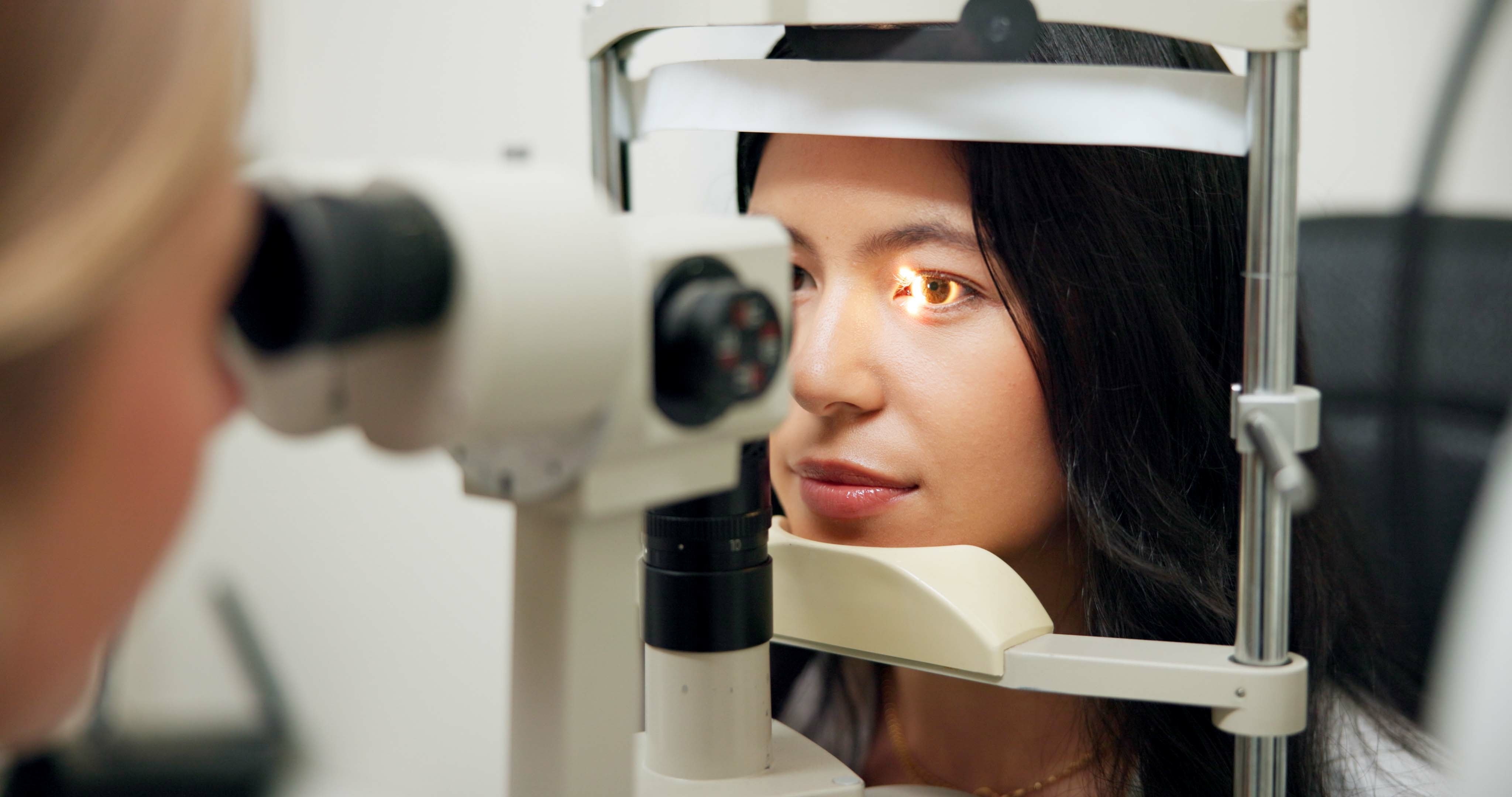Laser Vision Correction
SMILE Laser Eye Surgery

SMILE, or Small Incision Lenticule Extraction, is a minimally invasive laser eye surgery that corrects refractive errors such as myopia (nearsightedness) and, in some cases, astigmatism. It is an alternative to more widely known procedures like LASIK or PRK. SMILE uses a femtosecond laser to create a small, lens-shaped piece of tissue (lenticule) within the cornea. This lenticule is then removed through a tiny incision, allowing the cornea to reshape and correct the vision issue.
Benefits of Smile Laser Eye Surgery
SMILE Laser Eye Surgery has unique advantages. The procedure involves a small incision, minimizing disruption to the eye's surface and, in turn, promoting faster healing. Patients often experience less postoperative dryness. Recovery is relatively quick and comfortable, making it an appealing choice for many. Additionally, SMILE does not involve the creation of a corneal flap, enhancing both the safety and overall comfort of the procedure and recovery.
The SMILE Eye Surgery Procedure: Step-by-Step
• Comprehensive Pre-Operative Assessment: Before undergoing SMILE laser eye surgery, you will receive a detailed evaluation using the latest diagnostic equipment. Our specialists will assess your eye health, corneal thickness, prescription stability, and overall candidacy for the procedure.
• Laser Application: Under topical anesthetic eye drops, the surgeon uses the femtosecond laser to create a lenticule within the cornea. The laser phase typically takes less than 30 seconds per eye.
• Lenticule Removal: A small (2–4 mm) incision is made, and the lenticule is carefully extracted. This reshapes the cornea to achieve the desired refractive correction.
• No Need for a Corneal Flap: Unlike LASIK, SMILE preserves more of the eye’s natural structure, reducing the chance of flap-related complications and maintaining stronger corneal biomechanics.
The entire SMILE surgery process is quick, safe, and virtually painless — most patients report experiencing only minor pressure during the procedure.
Recovery After SMILE Laser Eye Surgery
Recovery from SMILE laser eye surgery is notably fast and smooth, making it an ideal choice for busy individuals. Here's what you can expect:
• First 24 Hours: Mild blurriness and minimal discomfort are common. Most patients notice a significant improvement in their vision within the first day.
• First Week: Vision continues to stabilize quickly, and many resume normal activities like work or light exercise within 1–2 days post-surgery.
• Long-Term Healing: Full visual recovery typically occurs within a few weeks, with ongoing refinement in sharpness and clarity. Your surgeon will schedule follow-up visits to monitor your healing closely.
Because SMILE involves no flap creation, there is a lower risk of dry eye syndrome and faster neural healing compared to traditional LASIK.
FAQ
Your Questions Answered
A suitable candidate for SMILE Laser Eye Surgery is someone who wants to reduce or eliminate myopia, with or without astigmatism. Ideal candidates have a spherical refractive error between -0.50D and -10.0D, astigmatism up to -2.50D, and an MRSE (manifest refraction spherical equivalent) that does not exceed -12.5D in the eye being treated. Importantly, they should have documented stability in their manifest refraction.
SMILE is perfect for individuals seeking greater freedom and convenience in their daily routines without having to use glasses or contacts. This procedure especially appeals to those who prefer a long-term vision solution.
A common question regarding SMILE Laser Eye Surgery is whether patients will need glasses after the procedure. The primary goal of any laser vision correction (LVC) procedure, including SMILE, is to reduce or eliminate the need for corrective lenses. While many patients achieve significant freedom from glasses or contacts, it's crucial to understand that this is a medical procedure, and there is no absolute guarantee that corrective lenses won't be needed later down the road.
Once you reach approximately 45 years of age, the natural process of presbyopia—age-related difficulty with near vision—will still require reading glasses from time to time. SMILE does not alter or affect this normal age-related change in vision.
The SMILE Laser Eye Surgery is quick and efficient. The laser portion of the procedure takes less than 10 seconds, and the entire treatment for both eyes typically lasts about 15 minutes. You will experience minimal disruption to your schedule and daily activities.
As with any laser vision correction (LVC) procedure, SMILE Laser Eye Surgery carries certain risks and potential side effects, which your clinical team can provide in detail. Most of these risks are similar to those associated with other LVC procedures, with one notable distinction: SMILE does not involve creating a corneal flap, which helps reduce some of the associated risks.
While SMILE has been shown to reduce the likelihood of post-operative dryness, it's important to recognize that it may not completely eliminate this issue for everyone. Your clinical team can guide you through all potential side effects so you can better determine your options.
For more detailed information regarding the longevity of SMILE results, contact U Vision Group today. We are happy to discuss your specific eye health and vision goals and help you know what to expect post-procedure.
Book a Free Virtual Consultation
Lorem ipsum dolor sit amet consectetur adipiscing elit. Quisque faucibus ex sapien vitae pellentesque sem placerat.
In id cursus mi pretium tellus duis convallis. Tempus leo eu aenean sed diam urna tempor.
.svg)

%20(1).png)